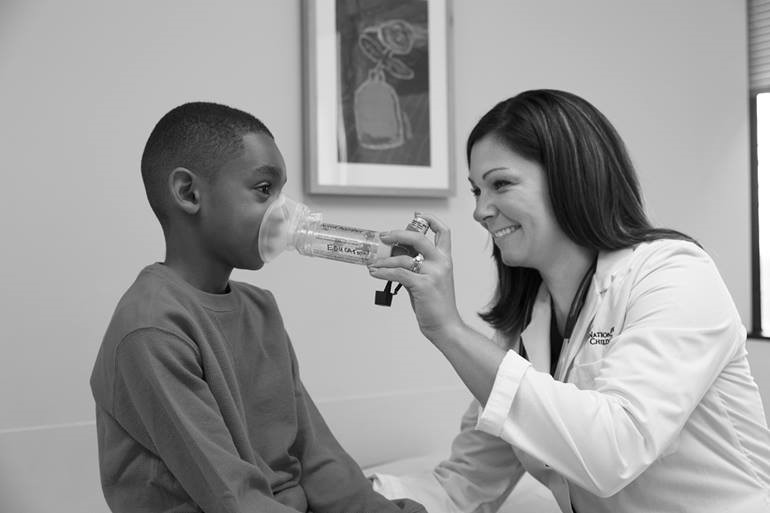8 Ways You Can Support Families in Need of Behavioral Health Services
8 Ways You Can Support Families in Need of Behavioral Health Services https://pediatricsnationwide.org/wp-content/themes/corpus/images/empty/thumbnail.jpg 150 150 Nancy Cunningham, PsyD Nancy Cunningham, PsyD https://pediatricsnationwide.org/wp-content/uploads/2021/03/010509ds117-Nancy-bio.gif- October 24, 2017
- Nancy Cunningham, PsyD
Long wait times and difficulties accessing behavioral health services cause stress for many patients and families.
As awareness grows about the prevalence of behavioral health challenges for children and adolescents, more patients and families are seeking specialized care. However, due to a shortage of behavioral health specialists, wait times can seem daunting.
As the pediatrician, you have the opportunity and responsibility to support these families through a challenging time. From integrating behavioral health care in your practice to advocating for your patients in a complex health care system, here are eight ways to help your patients and their families get the help they need.
Follow up with the intake department. Once you have made a specialty referral or the family has done so on their own, encourage them to contact the intake department if they are waiting for services and their child’s problems are worsening. Behavioral health providers work hard to address urgent needs, so make sure that they are aware of the seriousness of the problem.
Get the school involved. Encourage families to talk with school personnel about their child’s concerns, or do so yourself if possible. In addition to being an additional set of eyes and ears for the child, schools may be able to offer or recommend additional supports. Some have established school mental health services that families can access.
Take advantage of community resources. Understand your county behavioral health crisis services and make them available to families. While it is discouraged to have families utilize emergency care unnecessarily because they are expensive and time-consuming, make sure families can access these crises services when needed. When possible, contact the crisis provider at the time you are making a crisis referral or encouraging a family to go to the behavioral health crisis center to provide relevant information, to help families know what to expect, to ensure for safe continuity of care, and to plan for follow-up care.
Develop relationships with providers. Raise your awareness of, and develop relationships with, a range of behavioral health providers in your community. If families perceive that you have confidence in your referral recommendations, they will be more likely to follow through with needed care. Making a referral to a large children’s hospital such as Nationwide Children’s Hospital may be understandable given the breadth of well trained staff. However, in many communities, well trained staff in smaller organizations or practices might be more easily accessed. If families are waiting for long periods of time, they may be less likely to follow through with their appointment and problems can exacerbate. Likewise, if the provider is too far for the family to drive to realistically, they may show for their first appointment but not maintain their services. If competent services are available locally for families, this is often a better option.
Consider other specialties before referring to psychiatry. Avoid referring directly for psychiatric services before a behavioral health clinician has completed a diagnostic assessment and treatment plan unless there is a clear rational. Psychiatry wait times are typically the longest of all behavioral health services, and many behavioral health diagnoses can be very effectively treated with psychosocial interventions. Educating parents about these options may help avoid unnecessary medications while also helping children and families gain capacities and skills in addressing their presenting concerns.
At the same time, develop a strategy for consulting with psychiatry. This will increase your confidence in managing psychiatric conditions in your office and help clarify when a specialty referral is needed.
Educate yourself and your patients. Equip yourself with psychoeducational resources that families can access quickly and easily. A plethora of information is available to families, but professional guidance on safe and reliable resources will ensure that families are utilizing the best information.
The American Academy of Pediatrics has developed excellent resources and practice guidelines to help pediatricians manage common disorders such as ADHD, mood and anxiety disorders, and common behavioral problems. In addition to medication management, pediatricians can directly recommend many simple, effective psychosocial interventions to patients and families, either while they are waiting for care or in lieu of it.
Conduct regular screenings for behavioral health issues. Screen for behavioral health concerns consistently and develop a strategy for tracking cases that have screened positively and either are receiving or are in need of care. Identifying behavioral health problems when they begin presents an opportunity for early intervention and reduces the need for higher levels of care.
Honest, supportive and direct conversations about issues such as family drug use, parental conflict, family interpersonal violence and abuse, and parental mental illness are especially difficult, even for experienced physicians. But these conversations are essential to the diagnoses and treatment of pediatric behavioral health disorders. Taking adequate time and being fully present during conversations with families increases the patient’s and family’s willingness to disclose and discuss these issues.
In addition to helping a family solve problems regarding their child’s needs, pediatricians may be able to help parents identify supports for themselves that could ultimately benefit the child. If you are not currently using the Adverse Childhood Events questionnaire, consider adding it to your screening strategy to help identify key social issues that can influence current health risks, morbidity and early mortality.
Integrate behavioral health care in your office. Across the country, efforts are underway to expand the number of primary care offices with integrated behavioral health services. Integrating behavioral health services in primary care offices provides multiple benefits:
- Patients and their families can be seen efficiently in the pediatrician’s office and oftentimes during a scheduled medical visit
- Consultation and collaboration among professionals improves treatment coordination and patient satisfaction
- Services for patients requiring higher levels of care than can be safely provided in a primary care setting may be coordinated by the behavioral health provider while monitoring the patient to effectively address safety concerns
At Nationwide Children’s, we are continuously working to improve our responsiveness to the demand for pediatric behavioral health care. However, pediatricians are in a critical position to support improved utilization and access to behavioral health care or ancillary support services. Continuing active partnerships with local behavioral health providers is needed so that systems of care are utilized most efficiently and effectively on behalf of the children and families we serve.
About the author
Nancy Cunningham, PsyD, director of Community Engagement and Development, Big Lots Behavioral Health Services, is a psychologist at Nationwide Children’s Hospital who has provided child and adolescent clinical services and overseen program development in their behavioral health department. Dr. Cunningham currently works with external community providers and organizations to develop partnerships that result in improved access to care and integration of services on behalf of children and their families.
-
This author does not have any more posts.
- Posted In:
- Clinical Updates
- Features
- Second Opinions






